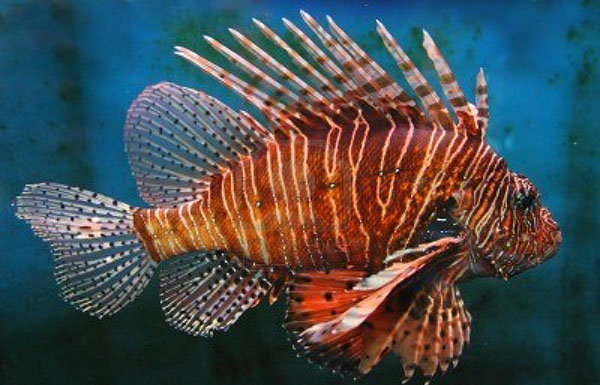QUEENSLAND, Australia CMC – A new study by scientists at James Cook University here, has found that the Red Lionfish, also known as the “ghost fishes of the coral reefs”, continue to invade the Caribbean in record numbers.
The spiny, toxic and beautiful member of the world’s coral reef communities is invisible to the small fish it likes to eat, the study finds.
James Cook University scientists Oona Lönnstedt and Professor Mark McCormick, have suggested that this is one reason for the “lionfishes’ incredible success in the Caribbean, where it is eating its way through the reef ecosystem.
“Lionfish are native to the Pacific, but have been taking over the Caribbean Basin ever since they were accidentally introduced almost 30 years ago,” McCormick said.
“Their extreme success as an invasive predator has long been a mystery to ecologists worldwide,” he added.
The new research, published in the latest issue of PLoS ONE science journal suggests that the solution in part lies in the power of camouflage, “as these voracious carnivores are virtually undetectable by small prey fish.”
Scientists say the Red lionfish (Pterois volitans) are a “rare and beautiful sighting for divers in their native waters around the Great Barrier Reef,” but added that, in the reefs around the Florida coast and Caribbean, they are viewed as a “huge nuisance.”
“For over a decade, scientists have tried their best to understand how these gorgeous but deadly predators can wreak such havoc on their invaded ecosystem. Almost all of the work to date has focused on the consequences of the interaction between these predators and their prey in areas where lionfish are invasive species,” he said.
McCormick and James Cook University graduate student Oona Lönnstedt, have now found that lionfish are “undetectable by prey, acting as ghosts able to feed on anything and everything without being discovered until it’s too late.
“We tested the response of small prey fish to three different predators, one of them the lionfish,” Lönnstedt said.
“Surprisingly, the common prey fish were unable to learn that the lionfish represented a threat, which was very different to their response to two other fish predators,” she added. “Lionfish were able to sneak up on their prey and capture every single one, while the other predators had much lower feeding success.”
Lönnstedt said this ability to bypass a “very well-studied learning mechanism commonly used by prey to learn new risks is a world first, and has in part lead to the astounding success of lionfish in the Caribbean.”
 Pride News Canada's Leader In African Canadian & Caribbean News, Views & Lifestyle
Pride News Canada's Leader In African Canadian & Caribbean News, Views & Lifestyle





